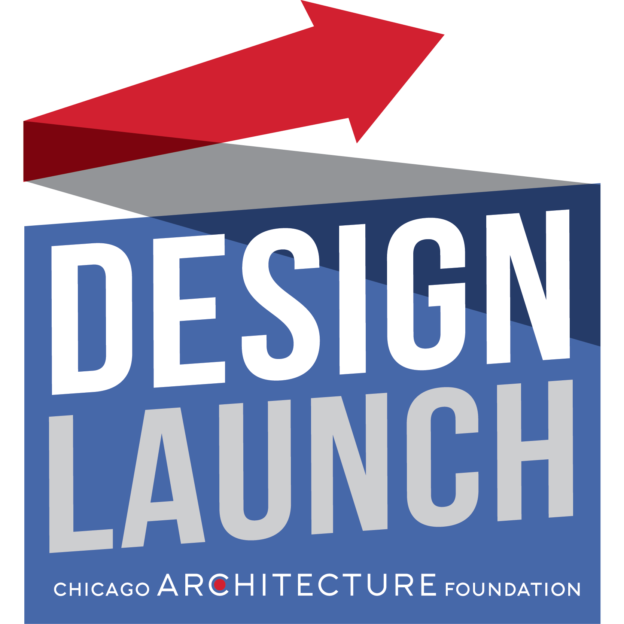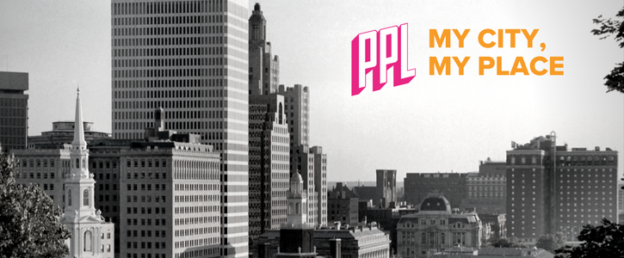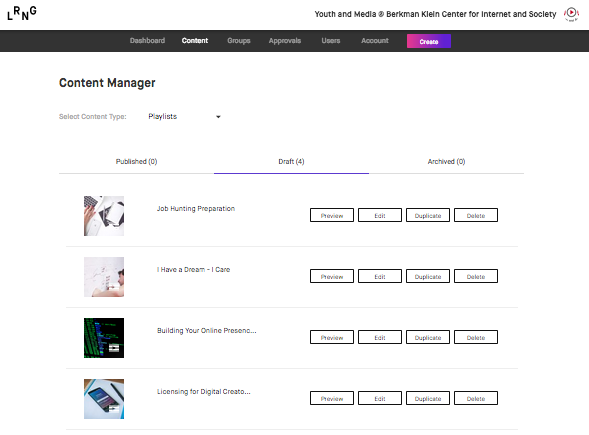Category: Connected Learning
-
Sky, Water, Earth: Final report

First of all, our team wishes to thank the DML Competition for the opportunity to explore and play. We have already learned lots from the development phase. I expect to gain more insights and develop additional best practices as we move to the maintenance phase of the project. I’ve pulled key points from our full report that may be […]
-
Connected learning hackathon sessions
For this post, I’d like to share our experience hosting connected learning hackathon sessions. I have attached our session agenda (which includes the reason why the session was set up in a particular way) and the session questionnaire we distributed to the participants. We hosted three separate 5-hour long sessions. The main goals of our hackathon were […]
-
Sandboxes for Learning Final Report

Written by Paul Allison, Christina Cantrill, Joe Dillon, Dawn Reed and Chris Sloan Our question at Youth Voices (youthvoices.live) for over fourteen years now has been how do we create spaces where youth can create and enter into conversations with peers from around the country about issues that matter to them. As educators working with youth, […]
-
Reflecting on the Design and Development of Music Learning Playlists
As part of the DML 6 Playlists for Learning initiative, the Consortium for Innovation and Transformation in Music Education at Arizona State University collaborated with a number of partners such as NYU’s MusEdLab, content expert consultants, K-12 music educators, pre-service music educators, and young people to develop Sound Explorations: Creating, Expressing, and Improving Communities. Sound […]
-
DML Competition Final Report

The Chicago Architecture Foundation is grateful for the grant provided through the University of California, Irvine Human Research Institute in support of DesignLaunch, as part of the Digital Media and Learning: Competition VI initiative. Below, please find our answers to the questions posed. 1) Who were you addressing with your design objective? DesignLaunch is CAF’s first-ever […]
-
Art and Science of Vision: Reflections

Who were you addressing with your design objective? The Art and Science of Vision team design objective worked to address San Diego-area learners, ages 13-18. The team specifically sought average students–not failing, but not entirely sure of their future academic or career paths. What are the three essential questions the field needs to answer to […]
-
65% of Future Jobs Haven’t Been Invented Yet? Cathy Davidson Responds to Cathy Davidson and the BBC

This weekend I was interviewed for a delightful show on the use and abuse of statistics broadcast by the BBC World Service, “Have 65% of Future Jobs Not Yet Been Invented?” Good question. And one that tells us much about data, statistics, and the power of numbers to seemingly illuminate without really doing so […]
-
Playlists for Learning: Challenging, Engaging and Connected to Community

Who were you addressing with your design objective? While designing My City, My Place, we had a specific persona in mind. Our design persona was a public high school student who enjoys technology, isn’t that familiar with our library, and wants to showcase what makes their city/state “the place to be”. What are the three […]
-
Challenges and Opportunities of Co-designing Playlists with Youth (DML Competition Final Report)

The main goal of the Digital Citizenship Learning Playlist project was to co-design four digital citizenship playlists in collaboration with young people from youth-serving organizations in the Boston metropolitan area. Working together, we created four playlists, addressing specific questions that youth had about sharing personal information, credibility, careers, and digital rights and responsibilities. Where helpful, […]
-
“We Aren’t Therapists”: Mental Health in Our Classrooms
(Cross-posted from the Teach @ CUNY’S Visible Pedagogy site, here.) Too often, we encounter the refrain that “professors are not therapists.” This is generally true, and a reminder of the importance of healthy boundaries and self-care. At the same time, this refrain is also too frequently used as an (unintentionally) ableist excuse for not making […]